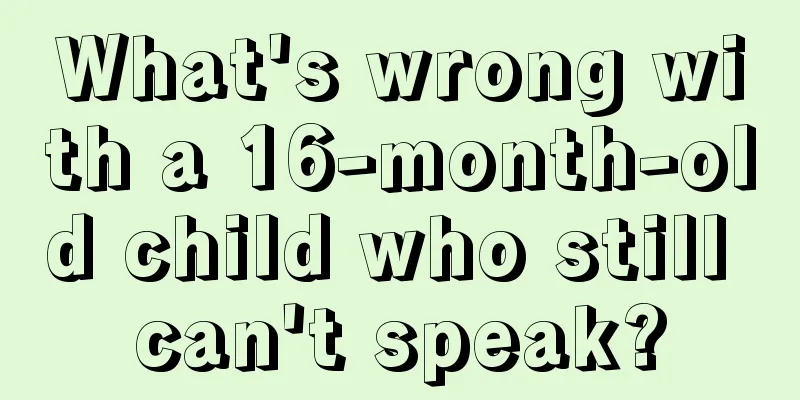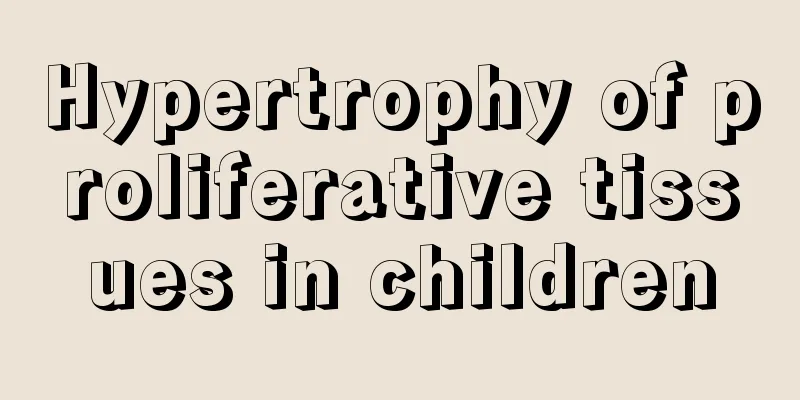What vegetables should students eat to nourish their brains?

|
Nutritionists point out that we should eat more vegetables of various colors in our daily life, so as to ensure that the brain has abundant vitality and make the brain healthier. For students, brain-boosting foods can play a very important role in improving their intelligence and learning ability. Therefore, parents should give their children more brain-boosting foods. So, what vegetables can students eat to nourish their brains? What vegetables can nourish the brain? 1. Broccoli Broccoli, the "crown of vegetables", is not only high in nutrients, but also very comprehensive, mainly including protein, carbohydrates, minerals, vitamins and carotene. The vitamin K in it helps to enhance brain activity. 2. Spinach A study from Rush University in Chicago found that green leafy vegetables such as spinach can help keep the brain sharp. Just eating one or two servings of spinach a day can make your intelligence 11 years younger. Because spinach is rich in vitamins A, C, B1 and B2, it is one of the "best suppliers" of brain cell metabolism. In addition, it contains a large amount of chlorophyll, which also has brain-boosting and intelligence-enhancing effects. 3. Tomato The lycopene in tomatoes can repair cells damaged by lack of sleep and restore a drowsy mind to normal. Cooked tomatoes are more effective. Try this plate of scrambled eggs with tomatoes. Scrambled eggs with tomatoes is a good example of nutrient complementarity. While enriching nutrition, it also has the effect of strengthening the brain and resisting aging. 4. Daylily Daylily has good brain-enhancing and anti-aging effects because it is rich in lecithin, a substance that is a component of many cells in the body, especially brain cells. It plays an important role in enhancing and improving brain function. It can also clear deposits in the arteries and has special therapeutic effects on symptoms such as inattention, memory loss, and cerebral artery blockage. Therefore, people call it a "brain-enhancing vegetable." 5. Sweet potatoes β-carotene is an antioxidant that effectively protects the brain, and it is responsible for the color of carrots. In fact, studies have shown that carotenoids and vitamin C can prevent Alzheimer's disease. One sweet potato contains about 100 calories and 14 mg of beta-carotene, which is about twice your daily requirement. 6. Carrots Carrots are rich in antioxidants, vitamins and trace elements, which are beneficial to improving brain health. The beta-carotene in carrots is good for eye health and also helps prevent brain degeneration. Pumpkin is also a very good brain-boosting vegetable because the vitamin A content in pumpkin is higher than that of all green vegetables. In addition to vitamin A, it also contains a lot of nutrients such as zinc and potassium. It has a very good therapeutic effect, especially for people with impaired memory and neurasthenia. |
<<: What should I do if my child has synovitis and swelling?
>>: What are the daily care for children with tonsillitis?
Recommend
There is a hard lump behind the child's ear
Children themselves often don’t care or worry muc...
What are the preventive measures for rickets in children?
Rickets in children is a common nutritional disea...
What should I do if my 14-month-old baby has a fever?
Some babies have fever problems, which seriously ...
What to do with scoliosis in children? Treat according to the situation
Scoliosis is very common in children. It not only...
What subject is not allowed for children to pass in pronunciation?
The child is too young, and the various organs of...
How to use massage to stop vomiting in children
In daily life, we often see some pediatric massag...
Is it normal for newborns to have milk clots?
Perhaps many parents will find that their babies ...
What causes chest tightness and shortness of breath in children?
Sometimes chest tightness and shortness of breath...
What medicine should be used for children's skin allergies
Children's immunity is very poor, so they are...
Can a 7 month old premature baby survive?
The survival rate of seven-month-old premature ba...
Parents' tone of voice determines their children's emotional intelligence and IQ
Tone of trust Children especially want to be trus...
Why does the baby keep yawning?
Women who have been mothers may have noticed that...
Why does eczema on the baby's face keep recurring?
Everyone may know that every baby has a different...
What should I do if my child has recurring diarrhea?
Diarrhea in young children can be divided into mi...
Normal white blood cell count for newborns
White blood cells are a type of immune cells secr...









